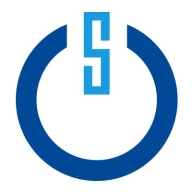

Binary Defense MDR and CRITICALSTART are two prominent competitors in the managed detection and response space. Binary Defense MDR is recognized for its pricing and support, offering favorable cost-benefit ratios, while CRITICALSTART is often seen as superior due to its advanced feature set and value proposition.
Features: Binary Defense MDR provides proactive threat detection, strong alerting capabilities, and customizable dashboards. CRITICALSTART, on the other hand, excels with deeper threat intelligence, rich analytics, and comprehensive integration options.
Room for Improvement: Binary Defense could enhance its analytics and integration capabilities further. There's room to expand its threat intelligence sources and broaden its feature set. CRITICALSTART could focus on simplifying its deployment process, enhancing mobile app features, and reducing its solution's complexity to attract more cost-conscious clients.
Ease of Deployment and Customer Service: Binary Defense MDR is known for a straightforward deployment and responsive customer service, facilitating easier management. CRITICALSTART, while more complex in deployment, offers dedicated customer support and comprehensive onboarding programs.
Pricing and ROI: Binary Defense MDR is typically more cost-effective, with lower setup costs and efficient threat management, promising significant ROI. CRITICALSTART requires a higher initial investment but offers substantial long-term ROI through its strategic advantages and advanced features.
| Product | Market Share (%) |
|---|---|
| Binary Defense MDR | 0.8% |
| CRITICALSTART | 0.9% |
| Other | 98.3% |
| Company Size | Count |
|---|---|
| Small Business | 5 |
| Midsize Enterprise | 4 |
| Large Enterprise | 7 |
| Company Size | Count |
|---|---|
| Small Business | 4 |
| Midsize Enterprise | 3 |
| Large Enterprise | 4 |
Binary Defense provides a Managed Detection and Response service using an Open XDR strategy that detects and isolates threats early in the attack lifecycle. Expert security analysts in the Binary Defense Security Operations Center leverage an attacker’s mindset, monitoring your environments for security events 24x7x365 and acting as an extension of your security teams. When a security event occurs, Binary Defense analysts triage, disposition, and prioritize the event. Analysts conduct full kill chain analysis and supply tactical and strategic mitigation recommendations to your security team with the goal of increasing your organization’s security posture against the latest adversary threats.
Visit us online at https://www.binarydefense.com
The cybersecurity landscape is growing more complex by the day with the arrival of new threats and new tools supposedly designed for combating them. The problem is it’s all creating more noise and confusion for security professionals to sort through.
CRITICALSTART is the only MDR provider committed to eliminating acceptable risk and leaving nothing to chance. They believe that companies should never have to settle for “good enough.” Their award-winning portfolio includes end-to-end Professional Services and Managed Detection and Response (MDR). CRITICALSTART MDR puts a stop to alert fatigue by leveraging the Zero Trust Analytics Platform (ZTAP) plus the industry-leading Trusted Behavior Registry, which eliminates false positives at scale by resolving known-good behaviors. Driven by 24x7x365 human-led, end-to-end monitoring, investigation and remediation of alerts, their on-the-go threat detection and response capabilities are enabled via a fully interactive MOBILESOC app.
We monitor all Managed Detection and Response (MDR) reviews to prevent fraudulent reviews and keep review quality high. We do not post reviews by company employees or direct competitors. We validate each review for authenticity via cross-reference with LinkedIn, and personal follow-up with the reviewer when necessary.